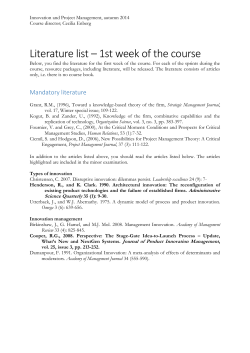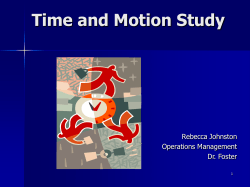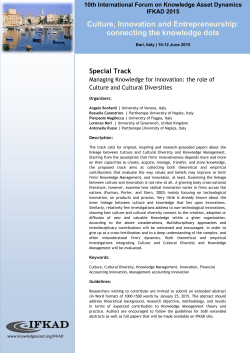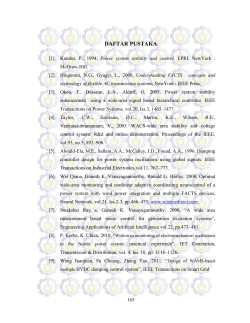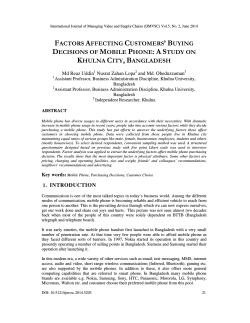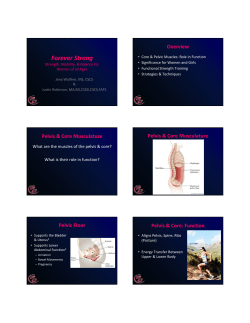
A Sample Syllabus
AVERY ARCHER Sample Syllabus EPISTEMOLOGY (AVERY ARCHER) 1. Course Description The primary goal of this course is to introduce students to some of the central issues and questions in the theory of knowledge, with a focus on the conceptual analysis of knowledge and scepticism. Our approach will be primarily textual rather than topical. That is, we will attend to various epistemological issues via a close reading of texts that have played an important role in shaping the contours of the field. One of the primary goals of this course will be to hone your ability to closely read philosophical texts. Classes will be devoted to analysis and discussion of the assigned readings. 2. Coursework The grade for the course will be broken down as follows: 1. Papers (80%) • 2 Short Papers (20% each): 4-‐‑5 double-‐‑spaced pages in length. • Term Paper (40%): 15-‐‑20 double-‐‑spaced pages in length. 2. Participation (20%) • Class Participation (10%): Asking questions, answering questions, and engaging in a constructive way in class discussion. • Blog Discussion (10%): I will be posting summaries of some of the core readings on the course blog, along with discussion questions. Students are asked to either respond to these questions, or critically engage other student’s responses, in the comments section of the post. 3. Lectures and Readings I. Gettier and the Nature of Knowledge Week 1: The Gettier Problem 1 J. Ayer, (1956) "ʺKnowing as Having the Right to be Sure"ʺ in The Problems of Knowledge. (London: Macmillan), pp. 22-‐‑34. • Edmund L. Gettier (1963) "ʺIs Justified True Belief Knowledge?"ʺ in Analysis, vol. 23, pp. 121-‐‑123. • Michael Clark, (1963) "ʺKnowledge and Grounds: A Comment on Mr. Gettier’s Paper"ʺ in Analysis, vol. 24, pp. 46-‐‑48. • Richard Feldman, (1974) “An Alleged Defect in Gettier Counterexamples” in The Australasian Journal of Philosophy, vol. 52, pp. 68-‐‑69. Week 2: Responses to Gettier • Alvin Goldman, (1967) "ʺA Causal Theory of Knowing"ʺ in The Journal of Philosophy, vol. 64, pp. 357-‐‑372. • Keith Lehrer & Thomas Paxson, (1969) “Knowledge: Undefeated Justified True Belief” in The Journal of Philosophy, vol. 66, pp. 225-‐‑237. • Fred Dretske, (1971) “Conclusive Reasons” in The Australasian Journal of Philosophy, vol. 49, pp. 1-‐‑22. Week 3: Externalist Theory of Knowledge • David M. Armstrong, (1973) “The Thermometer-‐‑Model of Knowledge” in Belief, Truth and Knowledge. (Cambridge: Cambridge University Press), pp. 162-‐‑183. • Robert Nozick, (1981) “Knowledge”, in Philosophical Explanations. (Cambridge: Cambridge University Press), pp. • Fred Dretske, (1983) “Precis of Knowledge and the Flow of Information”, in Behavioural Brain Sciences, vol. 6, pp. 55-‐‑63. Week 3: Internalist Theories of Knowledge • Richard Feldman and Earl Conee, (1988) “Internalism Defended”, in American Philosophical Quarterly, vol. 38, no. 1, pp. 1-‐‑18. • Roderick M. Chisholm, (1988) “The Indispensability of Internal Jusitification”, in Synthese, vol. 74, pp. 285-‐‑296. • Keith Lehrer, (1986) “The Coherence Theory of Knowledge”, in Philosophical Topics, vol. 14, pp. 5-‐‑25. Week 4: Attributions of Knowledge • Keith DeRose, (1992) “Contextualism and Knowledge Attributions"ʺ, in Philosophy and Phenomenological Research, vol. 52, pp. 913-‐‑929. • Fred Dretske, (1981) "ʺThe Pragmatic Dimension of Knowledge"ʺ, in Philosophical Studies, vol. 40, pp. 363-‐‑378. • 2 • Roderick Chisholm, (1982) “The Problem of Criterion” in The Foundations of Knowing. (Minneapolis: University of Minnesota Press), pp. 61-‐‑75. First Short Paper Due. II. Scepticism Week 5: Scepticism about Knowledge • Barry Stroud, (1989) “Understanding Human Knowledge in General”, in Knowledge and Skepticism. (Boulder: Westview Press), pp. 31-‐‑50. • Peter Unger, (1971) “A Defense of Skepticism” in Philosophical Review, vol. 80, pp. 198-‐‑219. • Barry Stroud, (1984) “The Problem of the External World” in The Significance of Philosophical Scepticism. (Oxford: Oxford University Press), pp. 1-‐‑38. Week 6: Relevant Alternatives • Robert Nozick, (1981) “Knowledge and Scepticism”, in Philosophical Explanations. (Cambridge: Harvard University Press), pp. 172-‐‑9, 197-‐‑211. • David Lewis, (1996) “Elusive Knowledge”, in The Australasian Journal of Philosophy, vol. 74, pp. 549-‐‑567. Week 7: Semantic Approaches • Hilary Putnam, (1981) "ʺBrains in a Vat"ʺ, in Reason, Truth and History. (Cambridge: Cambridge University Press), pp. 1-‐‑21. • Fred Dretske, (1983) “The Epistemology of Belief” in Synthese, vol. 55, pp. 3-‐‑19. • Donald Davidson, (1990) “A Coherence Theory of Truth and Knowledge”, in Reading Rorty. Critical Responses to Philosophy and the Mirror of Nature. (Oxford: Blackwell Publishers), pp. 120-‐‑138. Second Short Paper Due. III. Sources of Knowledge Week 6: Perception • Bertrand Russell, (1997) The Problems of Philosophy. (New York: Oxford University Press) ch. 1-‐‑2. • H. P. Grice, (1961) “The Causal Theory of Perception”, in Proceedings of the Aristotelian Society, Supplement, vol. 35, pp. 121-‐‑152. 3 • Peter F. Strawson, (1979) “Perception and its Objects”, in Perception and Identity: Essays Presented to A. J. Ayer. (London: Macmillan), pp. 41-‐‑60. Week 7: Introspection • Tyler Burge, (1988) “Individualism and Self-‐‑Knowledge”, in Journal of Philosophy, vol. 85, pp. 649-‐‑63. • Paul Boghossian, (1989) “Content and Self-‐‑Knowledge”, in Philosophical Topics 17.1: Philosophy of Mind. (Fayetteville, AR.: University of Arkansas Press), pp. 5-‐‑ 26. • Sven Bernecker, (1996) “Externalism and the Attudinal Component of Self-‐‑ Knowledge”, in Nous, vol. 30, pp. 262-‐‑75. Week 8: Memory and Testimony • Norman Malcolm, (1963) “A Definition of Factual Memory”, in Knowledge and Certainty. (Englewood Cliffs, NJ: Prentice Hall). • Michael Huemer, (1999) “The Problem of Memory Knowledge”, in Pacific Philosophical Quarterly, vol. 80, pp. 346-‐‑57. • C. A. Coady, (1973) “Testimony and Observation”, in American Philosophical Quarterly, vol. 10, pp. 149-‐‑55. Week 9: Induction • Bertrand Russell, “On Induction”, in The Problems in Philosophy. (London: William and Norgate), pp. 93-‐‑108. • Hans Reichenbach, “The Pragmatic Justification of Induction”, in Experience and Prediction. An Analysis of the Foundation and the Structure of Knowledge. (Chicago: University of Chicago Press), pp. 346-‐‑57. • Nelson Goodman, (1983) “The New Riddle of Induction” in Facts, Fiction and Forcast. (Cambridge, MA.: Harvard University Press), pp. 72-‐‑83. Week 10: A Priori Knowledge • Saul Kripke, (1980) “A Prior Knowledge, Necessity and Contingency”, in Naming and Necessity. (Cambridge, MA.: Harvard University Press), pp. 34-‐‑9, 48-‐‑58. • W. V. Quine, (1951) “Two Dogmas of Empiricism”, Philosophical Review, vol. 60, pp. 20-‐‑43. • Philip Kitcher, (1980) “A Priori Knowledge” in The Philosophical Review, vol. 89, pp. 3-‐‑23. Term Paper Due. 4
© Copyright 2025
